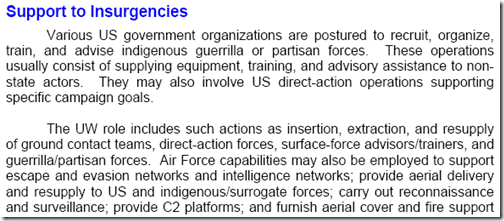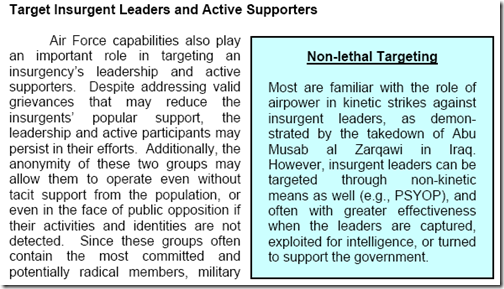By M K Bhadrakumar
http://atimes.com/atimes/South_Asia/LC23Df03.htmlNews that the United States Federal Bureau of Investigation (FBI) had reached a plea bargain with David Coleman Headley, who played a key role in the planning of the terrorist strike in Mumbai in November 2008 in which 166 people were killed, has caused an uproar in India.
The deal enables the US government to hold back from formally producing any evidence against Headley in a court of law that might have included details of his links with US intelligence or oblige any cross-examination of Headley by the prosecution.
Nor can the families of the 166 victims be represented by a lawyer to question Headley during his trial commencing in Chicago. Headley's links with the US intelligence will now remain classified
information and the Pakistani nationals involved in the Mumbai attacks will get away scot-free. Furthermore, the FBI will not allow Headley's extradition to India and will restrict access so that Indian agencies cannot interrogate him regarding his links with US and Pakistani intelligence.
In return for pleading guilty to the charges against him Headley will get lighter punishment than the death sentence that was probably most likely.
Headley's arrest in Chicago last October initially seemed a breakthrough in throwing light on the operations and activities of Lashkar-e-Taiba (LeT), the Pakistan-based terrorist organization, in India. But instead the Obama administration's frantic efforts to cover up the details of the case have been taken to their logical conclusion.
The plea bargain raises explosive questions. The LeT began planning the attack on Mumbai sometime around September 2006. According to the plea bargain, Headley paid five visits to India on reconnaissance missions between 2006 and the November 2008 strike, each time returning to the US via Pakistan where he met "with various co-conspirators, including but not limited to members of LeT".
The plea bargain simply refers to the Pakistani handlers of Headley as A, B, C and D. But who are they? We will never know.
The LeT's close links with Pakistan's Inter-Services Intelligence (ISI) are legion and it is inconceivable that such a massive operation - with huge international ramifications and the potential to trigger war with India - could have been undertaken without the knowledge of the ISI, headed by General Ashfaq Parvez Kiani, the present army chief, from October 2004 until October 2007.
The plea bargain says chillingly that after Headley's fifth visit to India, "Lashkar [LeT] Member A advised defendant [Headley] of a number of details concerning the planned attacks, including that a team of attackers was being trained in a variety of combat skills, the team would be traveling to Mumbai by sea and using the landing site recommended by the defendant, the team would be fighting to the death and would not attempt to escape following the attacks."
Yet, the operative part of the plea bargain not only rules out Headley's extradition to India but does not show that Headley gave any kind of formal commitment to the FBI to subject himself to interrogation by the Indians. He has merely agreed to give testimony in any foreign judicial proceeding that is held in US territory.
In essence, the Americans are saying that they will tell the Indians what Headley is saying and there is no need to interrogate him face-to-face. This is diametrically opposite to the US's approach to the Lockerbie trial after a bombed Pan Am flight crashed into the Scottish town of Lockerbie in 1988. Altogether 270 died. Abdelbaset Ali Mohmed al-Megrahi, a Libyan, was convicted of involvement in the bombing.
Again, the plea bargain confirms that Headley had a criminal record in the US from 1989 as a conspirator to import heroin and spent a total of six years in prison as a result of four convictions. He was later recruited as an agent by US drug-enforcement authorities, who after the 9/11 attacks in the US coordinated closely with the Central Intelligence Agency (CIA).
How much did the CIA know?
The plea bargain details that while working as an American agent Headley attended at least five “training courses” conducted by the LeT in Pakistan, including sessions in the use of weapons and grenades, close-combat tactics and counter-surveillance techniques, from February 2002 until December 2003.
Training courses in April and in December 2003 were each of three months' duration and in such close proximity to the 9/11 attacks that it stretches credulity to believe the CIA didn't care to know what their agent was doing in the LeT training camps.
Today, the heart of the matter is how much did the CIA know in advance about the Mumbai terrorist strike and whether the Obama administration shared all "actionable intelligence" with Delhi?
A senior Indian editor wrote on Sunday, "Headley ... was convicted on drug charges and sent to jail in the US. We know also that he was subsequently released from jail and handed over to the Drug Enforcement Administration, which said that it wanted to send him to Pakistan as an undercover agent. All this is a matter of public record. What happened between the time the US sent Headley into Pakistan and his arrest at Chicago airport a few months ago? How did an American agent turn into a terrorist? The US will not say."
Yet, cooperation in the fight against terrorism lies within the first circle of US-India strategic cooperation. The Mumbai attacks led to unprecedented counter-terrorism cooperation between India and the US - "breaking down walls and bureaucratic obstacles between the two countries' intelligence and investigating agencies", as a prominent American security expert, Lisa Curtis, underscored in US congressional testimony on March 11 regarding the Mumbai attacks and Headley.
To quote Curtis, "Most troubling about the Headley case is what it has revealed about the proximity of the Pakistani military to the LeT."
Curtis put her finger spot on the US government's deliberate policy to view the LeT through the prism of India-Pakistan adversarial ties. This is despite all evidence of the LeT's significant role since 2006 as a facilitator of the Taliban's operations in Afghanistan by providing a constant stream of fighters - recruiting, training and infiltrating insurgents across the border from the Pakistani tribal areas.
The US policy is impeccably logical. It prioritizes the securing of Islamabad's cooperation on what directly affects American interests rather than squandering away Pakistani goodwill by Washington covering for the Indians.
This political chicanery lies at the core of the unfolding Headley drama. What emerges, even if one were to give the benefit of the doubt to the CIA, is that Headley was its agent but he possibly got involved with Pakistan-based terrorist organizations and became a double agent.
No doubt, the US administration is behaving very strangely. It has something extremely explosive to hide from the Indians and what better way to do that than by placing Headley in safe custody and not risk exposing him to Indian intelligence?
The speculation gaining respectability in Delhi is that Washington knew in advance about the Mumbai attack and deliberately chose not to pass on details to Delhi.
Indeed, Washington knew of Headley's repeated missions to India from 2006 but did not share the information with the Indians. Headley, in fact, visited Mumbai once even after the city was attacked.
Clearly, the Obama administration was apprehensive that Headley might spill the beans if the Indians got hold of him and the trail could then lead to his links with the CIA, the LeT and the Pakistani military. And where would that leave the US?
Obama is obviously in no position to "pressure" the Pakistani military leadership. The US's obsession is to somehow end the fighting in Afghanistan before the US presidential election campaign commences in 2012. The extent to which the US is beholden to the Pakistani military today is apparent from the about-turn lately by even a self-styled "agnostic" like the AfPak special representative, Richard Holbrooke, about the Pakistani military leadership's commitment to the fight against terrorism.
A foreign policy in shambles
All said, however, the Americans seem to count on their skill to manipulate the Indian elite. Robert Blake, the US assistant secretary of state for South Asia who used to be the deputy head of the US Embassy, visited Delhi last week on a damage-control exercise. He huddled with the Indian corporate sector, which is hugely influential with the political class.
However, will the strategy of leveraging the pro-US lobby in Delhi work this time to ease the strain in the US-India “partnership”? The Mumbai terror attack left deep scars in the Indian public psyche. For the first time in recent years, the Indian public has closed ranks with prevalent opinion in Pakistan that sees the US as a diabolic, self-centered power, which double-crosses its partners, friends and allies in single-minded pursuit of its interests.
This perception has consequences for the democratically elected government in Delhi. The big question is whether the ruling party in India can any longer afford to be seen sharing Indian Prime Minister Manmohan Singh's robust enthusiasm for a US-centric foreign policy.
It has been a devastating blow to Manmohan's personal prestige that the FBI's plea bargain deal unfolded in the week he had earmarked for the tabling of legislation in parliament that would facilitate the entry of American companies into the Indian market for nuclear commerce.
Manmohan's visit to Washington to attend a nuclear summit hosted by Obama on April 12 was expected to give a fillip to US-India ties, but Headley haunts the ambience surrounding that visit.
The Headley case exposes the fallacies underlying India's foreign policy ever since Manmohan assumed office as prime minister in 2004 - that "strategic partnership" with the US could be central insofar as contacts with Pakistan were best conducted under the US watch and Delhi's interests as an emerging power lay in harmonizing with US regional policies.
A rethink on foreign policy has now become almost inevitable. Delhi recently rolled out the red carpet to Russian Prime Minister Vladimir Putin. Delhi may now seriously engage Tehran, despite Manmohan's manifest indifference toward India-Iran ties. The prime minister will find it even harder now to "operationalize" the India-US nuclear deal of 2008, due to an inability to legislate a liability bill that the US nuclear industry seeks as a pre-requisite for doing business in India.
To what extent US expectations to corner a big share of India's arms bazaar are going to be realized us unclear, no matter the clout of US arms manufacturers with the Indian military community. All eyes in Delhi are trained on the US-Pakistan strategic dialogue in Washington on Wednesday in which Kiani is expected to pitch for a long-term strategic partnership between the two countries that duly recognizes Pakistan's pivotal role in US policies.
Most certainly Delhi can be expected now to work full throttle to resist the US-Pakistani game plan to engage the Taliban and to reintegrate them in Afghan power structures. The Headley saga underscores that the US-Pakistan axis in Afghanistan carries lethal potency for India's national security interests.
Ambassador M K Bhadrakumar was a career diplomat in the Indian Foreign Service. His assignments included the Soviet Union, South Korea, Sri Lanka, Germany, Afghanistan, Pakistan, Uzbekistan, Kuwait and Turkey. 











